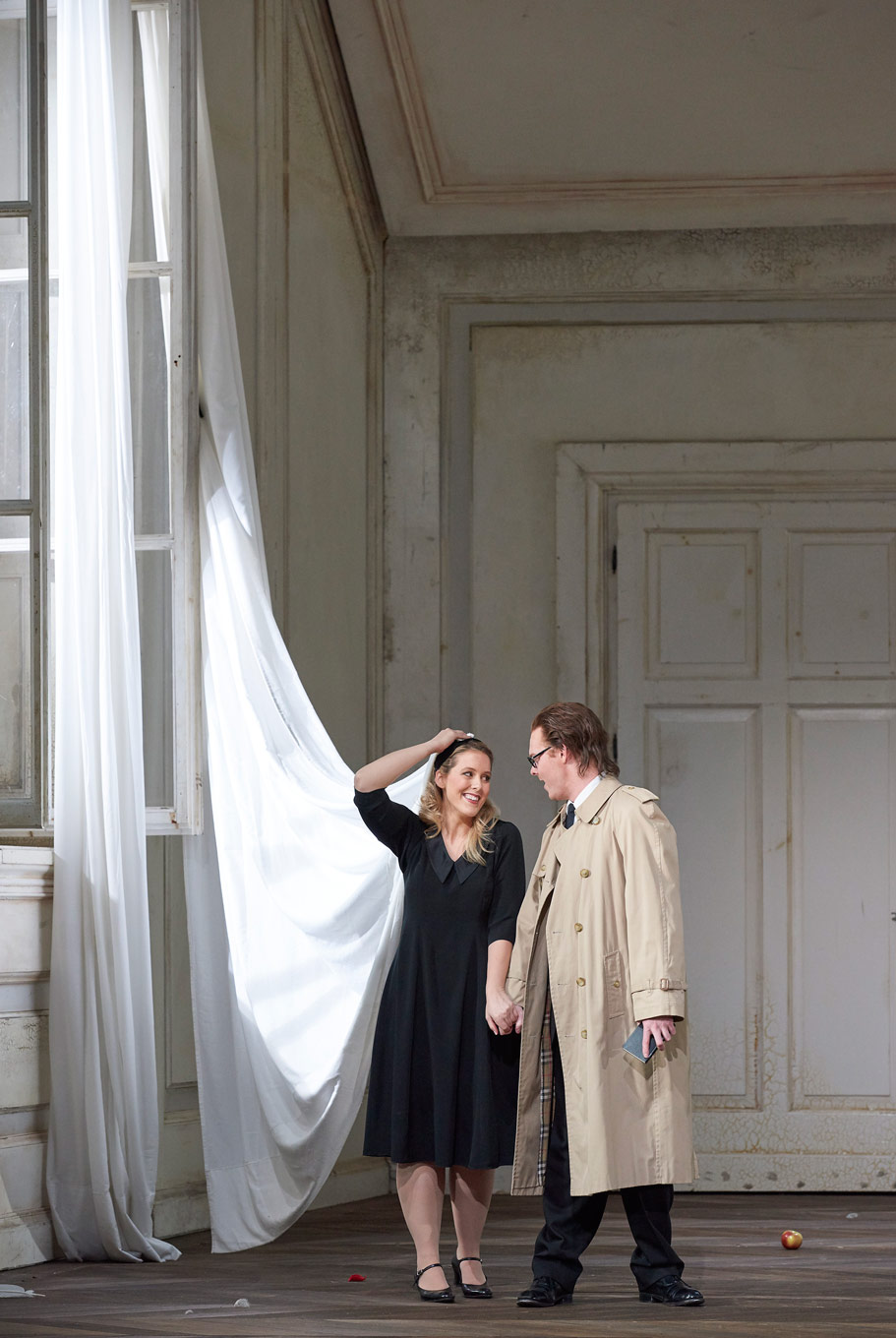
Spotlight on: Iain MacNeil
InterviewFresh off his Vancouver Opera debut as Figaro in Le nozze di Figaro, Canadian baritone Iain MacNeil is taking on more Mozart in the title role of Saskatoon Opera’s Don Giovanni, running through June 24. He sang leading roles in the Ensemble Studio performances of Il barbiere di Siviglia (2015) and Le nozze di Figaro (2016) at the Canadian Opera Company, and he made a dark and earnest Tarquinius in The Rape of Lucretia at The Banff Centre (2016).
Between performances of Don Giovanni, MacNeil chats about the simple stuff, like the value of a positive attitude, learning without fear, and why he loves his job.
Why do you sing, and why are you doing it professionally?
I sing because I fell in love with the voice while I was at university. Originally it was simply an instrument that I chose to study out of a list of instruments, but it grew into a journey that I needed to embark on wholeheartedly. I realized that the human voice had the potential to stir something inside of its listeners, and that I had the ability and the desire to be a part of that magic. I sing professionally because I can say with absolute certainty that I love my job.
What does “good singing” mean to you? What does it feel like when you achieve it?
I think that good singing can take many different forms. Technically speaking, I am always working towards a feeling in which my body and breath are running the show, not my throat. I think singing can have so much vitality and vulnerability when the singer allows it to be a full body experience. This is what I admire in my favourite singers. I also believe that a typical opera-goer appreciates when a singer is generous with their sound. This is all a work in progress for me, but when I am able to pour my voice and emotions out at the same time on stage, I refer to that as good singing.

What do young singers need to do more of? What should they do less of?
I think it’s a good idea to learn the languages that you’re singing in, at least to a functional level, if you want to be an effective performer. It definitely expedites music-learning, and opens the door to working in other countries as well as connecting with colleagues and audiences on a deeper level.
Something I don’t think is so necessary in the first decade of learning to sing is the fear of “bigger” or “more advanced” repertoire. I think it’s fine to try different types of repertoire on for size, even roles that are typically reserved for a few years down the road, for the purpose of seeing what fits and what doesn’t. You can learn lots from Mozart, but you can learn lots from Verdi and Puccini, too. I think it’s helpful to branch out, if only in the safety of a practise room or a lesson. Teachers, colleagues, and casting directors will tell you if something doesn’t fit.
Do you have any “bucket list” roles you’d like to sing (realistically or otherwise)?
In the immediate future I’m eager to do a Marcello (La bohème), a Billy Budd, an Onegin and a Papageno (The Magic Flute). There’s lots of Verdi and Wagner that I’m fantasizing about, but those will remain fantasies for the next little while.

What have you learned about your career as a singer, solely through professional experience?
I’ve learned that audiences and even audition panels will forgive vocal imperfection for a committed, sincere interpretation of a role or a piece. That said, I’ve learned that establishing a healthy singing technique that you can rely on day in and day out is priceless. Perhaps most importantly I’ve learned that a positive attitude helps to foster an effective and enjoyable work environment.


Comments